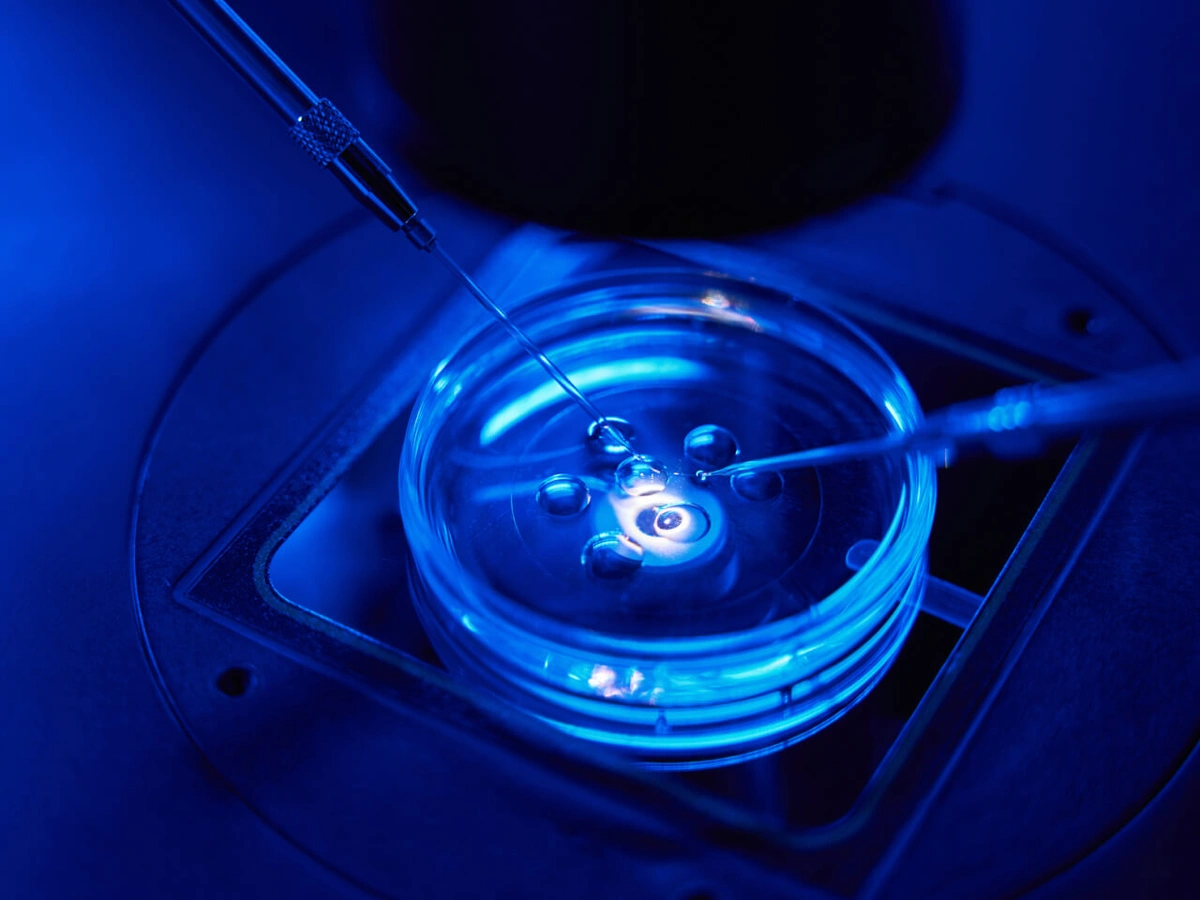How the IVF Process Works

When it comes to IVF, your doctor will determine the proper protocol for you and your partner. No matter your specific treatment decision, for your IVF cycle, you can expect certain consistent stages.
Step 1: Fertility Testing and Diagnostics
Before your treatment starts, you and your physician will discuss your medical history and family building goals. They will also complete a diagnostic workup to develop an individualized treatment plan. For women, this typically involves blood tests to measure hormones, a pelvic exam, and a transvaginal ultrasound exam. For men, fertility is evaluated through a semen analysis.
Step 2: Ovarian Stimulation and Monitoring
During an IVF cycle, you will receive injections with those same hormones made by your body. These higher doses stimulate your ovaries to produce more mature eggs than usual. Your physician will also frequently perform blood work and transvaginal ultrasounds to monitor how your ovaries respond to the medication and determine if any dosage adjustments are needed. When the eggs reach a certain size, a final injection will finish their growth before removal.
Step 3: Sperm Collection
If you have a male partner, he will provide a semen sample on the morning of your egg retrieval. If a partner or donor has provided frozen sperm, it will be thawed and prepared for fertilization.
Step 4: Egg (Ovum) Retrieval
An egg retrieval procedure is a minimally invasive procedure that usually takes less than 15 minutes. You don’t have to go to a separate hospital, but you will be lightly sedated, as the reproductive specialist extracts mature eggs from the ovaries via ultrasound guidance. Generally, you can resume normal activity by the next day.
Step 5: Fertilization and Embryo Testing
Within the IVF clinic laboratory, an embryologist places the retrieved eggs and sperm together in a petri dish. They then use a high-powered microscope to fertilize the eggs with the sperm. Certain procedures may also be performed at this time:
- Intracytoplasmic Sperm Injection (ICSI) – Should there be an issue with sperm quantity or quality or fertilization, the embryologist may employ ICSI. Using a very fine needle, a single healthy sperm is injected into each egg cell to initiate fertilization.
- Preimplantation Genetic Testing (PGT) – PGT is typically performed after fertilization to test the embryos for specific genetic abnormalities. A very small sample is taken from the embryo and genetically analyzed or sequenced to help identify the healthiest embryo for transfer. Embryos are frozen until the results return.
Step 6: Embryo Transfer / Frozen Embryo Transfer
Upon creating the embryos, the healthiest one is selected to be placed into the uterus after retrieval. You may also need to undergo a frozen embryo transfer (FET). With this procedure, you take fertility medications to prepare the uterus for optimal implantation or track ovulation to time the transfer.
Next, an ultrasound guides a small catheter through your cervix. This allows the fertility physician to place the embryo into your uterus, enabling implantation. While typically painless, you may experience mild cramping. Should additional viable embryos not be used during transfer, they can remain frozen for later use. Then, after about two weeks, you will return to the fertility clinic to undergo a pregnancy test for confirmation. During this time, it’s strongly recommended that you not take an over-the-counter pregnancy test, as the results can be misleading.




